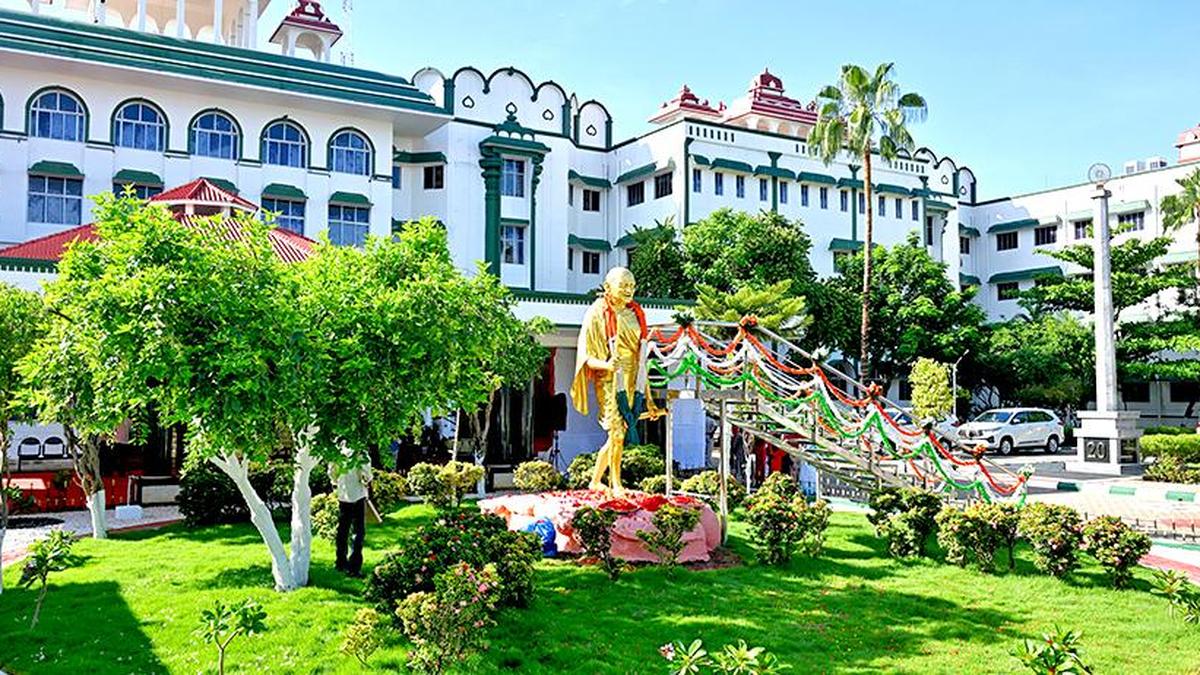HC sentences Tenkasi Hanifa to five-year RI for attempt to murder DSP


The Madras High Court was hearing the criminal appeal preferred by the State challenging the judgment of the Principal Sessions Court in Dindigul that acquitted Hanifa in the DSP attack case.
The Madurai Bench of the Madras High Court has sentenced Mohammed Hanifa alias Tenkasi Hanifa to five-year rigorous imprisonment for offences under the Indian Penal Code, Unlawful Activities (Prevention) Act (UAPA), 1967, and the Explosive Substances (Amendment) Act in a case pertaining to attack on a Deputy Superintendent of Police.
He is also an accused in the case of attempt on the life of senior BJP leader L. K. Advani through a pipe bomb in Madurai district in 2011.
The court was hearing the criminal appeal preferred by the State challenging the judgment of the Principal Sessions Court in Dindigul that acquitted Hanifa in the DSP attack case.
The case of the prosecution was that Karthikeyan, DSP, SIT, Madurai, was also the investigating officer of the pipe bomb case. A non-bailable warrant issued by the court against Hanifa was pending. The police traced him to Batlagundu in Dindigul district.
In 2013, while executing the warrant, the DSP, along with police and revenue personnel attempted to apprehend Hanifa. He attacked Mr. Karthikeyan with a long knife. The DSP escaped from the attack. The police personnel overpowered Hanifa and seized the weapon.
They also seized under Mahazars two knives, two gel bags, two detonators, a newspaper, a piece of paper with a hit list and a small bag. Further, the accused identified a location, where the police seized 18 electronic detonators and 18 gel bags, hidden by him in a closed pit.
Subsequently, the DSP lodged a complaint at Batlagundu police station, where a case was registered against the accused and two others. The police filed a final report against the accused for offences under the UAPA, and the Explosive Substances (Amendment) Act. The trial court acquitted Hanifa.
Setting aside the acquittal, a Division Bench of Justices P. Velmurugan and L. Victoria Gowri observed that in cases of this nature, one could not expect total independence or public witnesses. The accused was hiding in a secret place. The police in order to execute the NBW and secure the accused went to the place.
The court said though Section 162 of the Cr.P.C said any statement recorded by the police officials were not admissible in evidence, in the cases of this nature, police officials themselves had been shown as witnesses. If their evidence inspired the confidence of the court and the defence had not established that their evidence had to be discarded, the court could rely on them.
The prosecution had proved the occurrence and recovery beyond reasonable doubt. Though the counsel for the accused and the trial court pointed out certain contradictions and discrepancies, they were not material contradictions going to the root of the prosecution case, the court observed.
Published – October 28, 2025 10:03 pm IST



